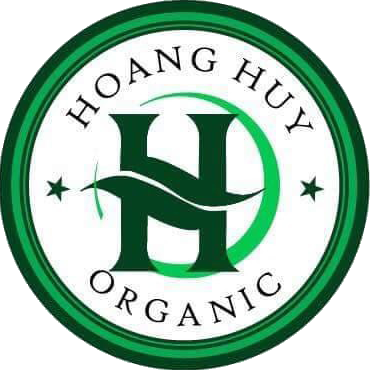business payday loans
All you Wanted to discover pay day loans but happened to be worried to inquire about. It’s Time to Ask the Candidates: Wheredoyoustand on combat Poverty?
This “legislative Whack-a-Mole” in the state level makes it clear that country requires national change to effortlessly shield consumers.
However, the buyer Investment Safety agency proposed newer policies in June that focus on probably the most egregious tactics on the market. Under the brand-new rules, loan sharks will have to see whether prospective borrowers are in fact capable payback that loan before they get one out (in most cases). The guidelines will stop the duplicated financial loans that trap individuals with debt: Lenders will not be allowed to straight roll-over financing or mortgage to the people which seek to re-borrow within thirty day period, unless those individuals can prove that they will take an improved situation financially. It will likewise spot crucial limits on lenders’ capacity to seize individuals’ bank account.
But here’s another tip: eradicate the requirement altogether. If consumers utilize payday loans to handle persistent shortfalls, next economic insecurity must be dealt with also through wage nature hikes and improvements to general public support software. These could go a long way to guard against earnings shortages that lead people to get financing with such insidious bills.
Linked
Latest week’s earliest presidential debate had gotten to a promising beginning. The very first question for the nights concentrated on the raising gap between your wealthy in addition to rest of us.
“There are two financial realities in America nowadays,” stated moderator Lester Holt. “Theres come accurate documentation six straight years of task increases, and brand new census data showcase incomes have increased at a record price after numerous years of stagnation. But earnings inequality continues to be big, and almost 50 % https://www.speedyloan.net/payday-loans-ia/burlington-4/ of Us americans are living paycheck to paycheck.
Have TalkPoverty Within Email
Holt is correct about the issues Us americans include dealing with. Nearly 50 per cent of all U.S. people report that they would find it hard to come up with $400 during a crisis. And 80 percent of Us americans will understanding one year of economic insecurity—either residing in impoverishment, requiring public support, or creating an unemployed mind of home.
The reality that inequality and money volatility had been talked about after all is a huge bargain.
In 2008, as many shed their own jobs in the course of the financial meltdown, the initial presidential argument featured no concerns on impoverishment or earnings inequality. Plus in 2012, as Americans are starting to go up from the Great Recession, poverty is dismissed by debate moderators—although chairman Obama nonetheless managed to discuss issues like low-wage jobs, the means to access community schools and instruction, affordable medical care and childcare, and shell out money. Meanwhile, during the lead-up toward presidential election in 2010, development channels bring devoted much less awareness of impoverishment and inequality in support of horse-race election protection.
But simply discussing poverty isn’t sufficient.
It’s critical that people move beyond talk, and concentrate on real systems. Case in point: in accordance with a recently available comparison by news issues for America, Fox reports discusses poverty significantly more than another community on the air—but instead of educating anyone on assistance, their own reports bolster stereotypes and untrue narratives about those who are who happen to be battling. Similarly, traditional people in politics like Paul Ryan posses sent high-profile speeches and put ahead alleged “poverty plans” for low income communities, while still encouraging trillions of dollars in cuts to antipoverty assets over a decade.
The same thing goes your presidential debates. We must discover where in fact the prospects stand on the guidelines that would dramatically minimize impoverishment and develop chance for everyone else in the usa.
Where do the candidates stand on Unemployment Insurance, that is woefully underfunded and at this time hits only one in 4 professionals who need it? What might they are doing to deal with college affordability—at a period when student loans possess ballooned to about $1.3 trillion and so many low-income youngsters are just valued regarding a college degree? Where create they get up on increasing the minimum wage—even $12 one hour by 2020 would carry earnings for more than 35 million people and conserve about $17 billion yearly in government services training. What about expanding Social Security—the most powerful antipoverty system into the nation—which lifted 26 million someone from poverty in 2015?
It’s time to query the prospects: Wheredoyoustand
The theory is easy: in the event that news isn’t likely to look to the prospects’ plans, we’re going to.
That’s the reason why this election month, TalkPoverty.org try working to force questions regarding the spot where the applicants stand-on impoverishment options inside presidential debate.
Unlike the most important debate, the next forum are a town hall featuring concerns submitted through social media. Building off a fruitful 2012 TalkPoverty venture brought because of the country magazine while the middle for United states advancement, now we’re releasing the Wheredoyoustand venture encouraging one display the issues you wish to notice within the next presidential argument. The concept is not difficult: if the news is not planning to search to the applicants’ plans, we’re going to.
Whether it’s through a photograph, a video clip, or a tweet, we wish to understand issues you might think must be expected. When you’ve tweeted the questions you have making use of Wheredoyoustand, display them throughout the Open argument Coalition blog to ensure that a lot more people can vote to listen to all of them during the debate.
Listed here are some examples of concerns to help you get going. It’s for you personally to go beyond focusing on whether anybody said “the p-word,” and make sure the discussions tackle genuine ways to poverty.

